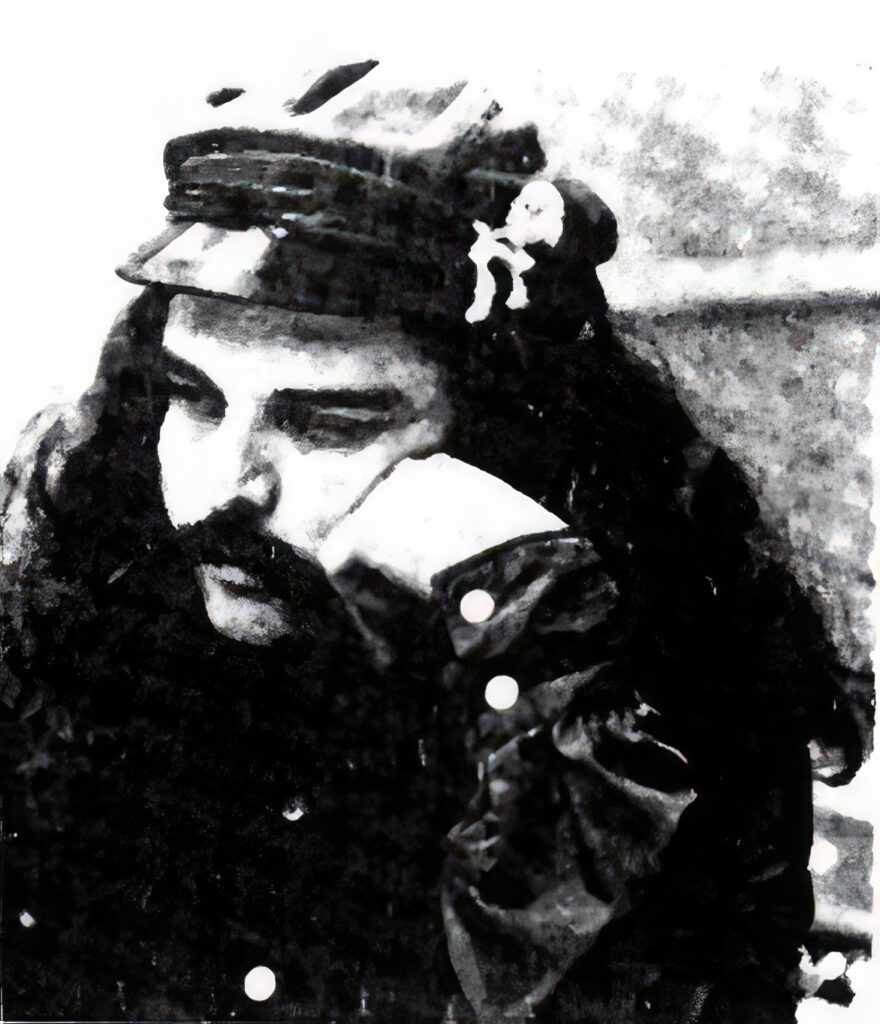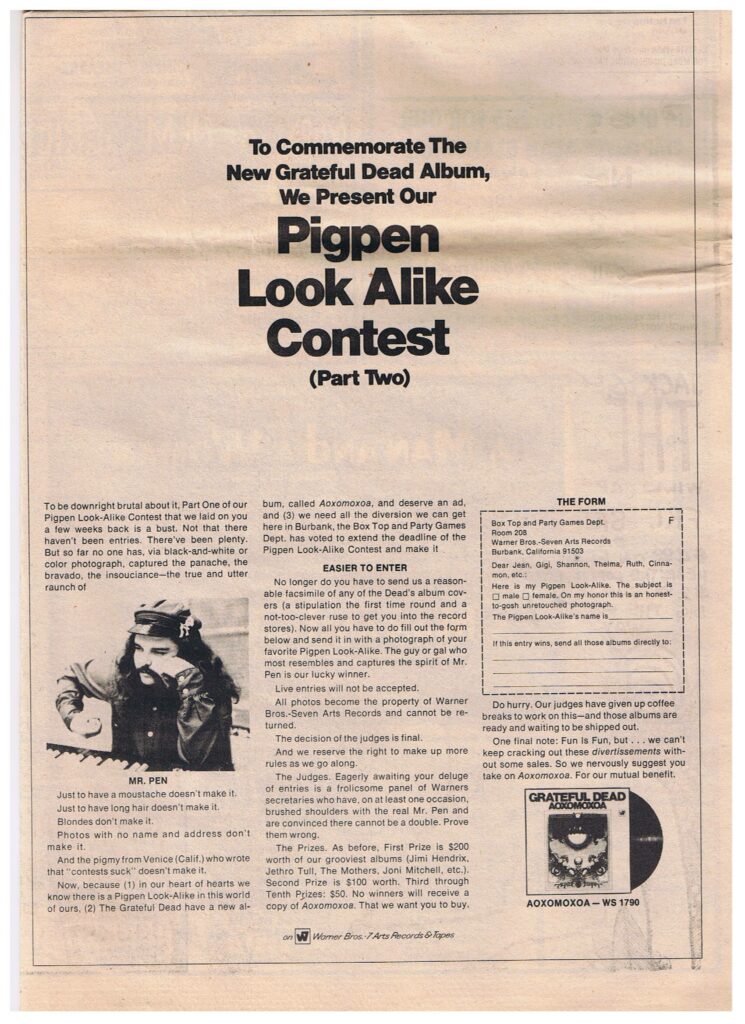Ron “Pigpen” McKernan: A Brief Biography

Ron “Pigpen” McKernan’s story is a fascinating blend of musical brilliance and personal struggle, encapsulated within the transformative era of the 1960s and early 1970s. His life, though brief, left an indelible mark on the world of rock music, particularly through his involvement with the iconic band, the Grateful Dead.
Early Life and Background: The Making of a Blues Prodigy
Born on September 8, 1945, in San Bruno, California, Ron McKernan’s Irish ancestry and his father Phil’s profession as an R&B and blues DJ laid the foundation for his profound connection with African American music and culture.
Phil McKernan, who worked at the notable black radio stations KDIA/KMKY and possibly Berkeley’s KRE/KBLX-FM, undoubtedly influenced young Ron’s musical tastes.
Growing up, McKernan didn’t just listen to blues – he lived it. He taught himself to play the blues piano, guitar, and harmonica, and amassed a substantial collection of old blues 78s from labels like Kent and Chess. His personal style too mirrored his musical tastes, developing a biker culture image that became synonymous with his persona.
A Fateful Friendship: Jerry Garcia and the Birth of a Legend
It was in Palo Alto, California, that McKernan’s path intertwined with Jerry Garcia. From the age of 14, their friendship and shared passion for music led them to work together at Dana Morgan’s Music Store in Palo Alto.
Here, McKernan earned the nickname “Pigpen”, a moniker that stuck, though its origins are debated – some say it was due to his untidy habits, others attribute it to his resemblance to the Peanuts character. This friendship and collaboration were the seeds from which the Grateful Dead would eventually sprout.
The Grateful Dead Era: A Trailblazing Musical Journey
McKernan was instrumental in the formation of the Grateful Dead, having been a part of precursor bands like the Zodiacs and Mother McCree’s Uptown Jug Champions. His advocacy for electric instruments was a pivotal moment in the band’s evolution.
Initially, the Grateful Dead’s music was deeply rooted in the blues and R&B, genres in which McKernan excelled as the original leader and frontman.
Evolution and Challenges
As the band’s style evolved under the influence of members like Garcia and Lesh, McKernan found it challenging to adapt. His role diminished with the arrival of Tom Constanten and soon Keith Godchaux on keyboards, though he continued to contribute through vocals, harmonica, and percussion.
Despite his reduced role, his performances in songs like “Turn On Your Love Light” and “Good Lovin'” remained signature moments in the band’s history.
Musical Style and Influences: The Heart of McKernan’s Artistry
McKernan’s musical arsenal included the Lowrey T1, Vox Continental, Hammond B-3 organs, and the harmonica. His vocal contributions, especially in blues and R&B standards, were significant.
Despite the band’s shift towards psychedelic and jamming styles, McKernan maintained his unique style, evidenced in performances like the improvisational “Turn On Your Love Light” and his songwriting in tracks like “Operator” and “Mr. Charlie”.
Personal Life: Beyond the Stage
McKernan’s life off-stage was as colorful as his performances. His friendship and romantic involvement with fellow music legend Janis Joplin, bonded over a shared love of alcohol, is well-known.
Ironically, despite his preference for alcohol over psychedelic drugs, he was once arrested in a cannabis bust. His distinctive biker image even inspired a “Pigpen Look-Alike Contest”.

Tragic End: Health Issues and Untimely Death
The darker side of McKernan’s life was his battle with alcohol abuse, leading to serious health issues. Diagnosed with primary biliary cholangitis, he was advised to stop touring. He made a brief return to the band but gave his final performance in June 1972.
Tragically, McKernan passed away on March 8, 1973, due to a gastrointestinal hemorrhage, joining the infamous ’27 Club’.
Enduring Legacy: Remembering Pigpen
Ron “Pigpen” McKernan’s legacy lives on. Friends remember him as a kind, introspective person. His influence is notably visible in Bob Weir’s stage presence and improvisation. The song “He’s Gone” became an anthem in his memory. In 1994, his contributions were immortalized with his induction into the Rock and Roll Hall of Fame.
Ron “Pigpen” McKernan’s life story is a poignant reminder of the transient yet powerful impact one individual can have on the world of music and beyond. His journey through the realms of blues and rock, peppered with personal battles and iconic moments, continues to inspire and resonate with music enthusiasts around the globe.